Robert Reed - A Billion Eves
VIP免费
2024-12-19
3
0
147.63KB
54 页
5.9玖币
侵权投诉
A BILLION EVES, by Robert Reed
1
Kala's parents were thrifty, impractical people. They deplored spending money, particularly on
anything that smacked of luxury or indulgence; yet at the same time, they suffered from big
dreams and a crippling inability to set responsible goals.
One spring evening, Father announced, “We should take a long drive this summer."
"To where?” Mom asked warily.
"Into the mountains,” he answered. “Just like we've talked about doing a thousand times."
"But can we afford it?"
"If we count our coins, and if the fund drive keeps doing well. Why not?” First Day celebrations
had just finished, and their church, which prided itself on its responsible goals, was having a
successful year. “A taste of the wilderness,” he cried out at the dinner table. “Doesn't that sound
fun?"
To any other family, that would have been the beginning of a wonderful holiday. But Kala knew
better. Trouble arrived as soon as they began drawing up lists of destinations. Her brother Sandor
demanded a day or two spent exploring the canyon always named Grand. Father divulged an
unsuspected fondness for the sleepy, ice-caked volcanoes near the Mother Ocean. When pressed,
Kala admitted that she would love walking a beach beside the brackish Mormon Sea. And while
Mom didn't particularly care about scenery—a point made with a distinctly superior tone—she
mentioned having five sisters scattered across the West. They couldn't travel through that country
and not stop at each of their front doors, if only to quickly pay their respects.
Suddenly their objectives filled a long piece of paper, and even an eleven year-old girl could see
what was obvious: Just the driving was going choke their vacation. Worse still, Mom announced,
“There's no reason to pay strangers to cook for us. We'll bring our own food.” That meant
dragging bulky cooler everywhere they went, and every meal would be sloppy sandwiches, and
every day would begin with a hunt for fresh ice and cheap groceries to replace the supplies that
would inevitably spoil.
Not wanting to be out-cheaped by his wife, Father added, “And we'll be camping, of course.” But
how could they camp? They didn't have equipment. “Oh, we have our sleeping sacks,” he
reminded his doubting daughter. “And I'll borrow gear from our friends at church. I'm sure I can.
So don't worry. It's going to be wonderful! We'll just drive as far as we want every day and pull
over at nightfall. Just so long as it costs nothing to pitch a tent."
To Kala, this seemed like an impossible, doomed journey. Too many miles had to be conquered,
too many wishes granted, and even under the best circumstances, nobody would end up happy.
"Why don't you guys ever learn?” Kala muttered.
"What was that, darling?"
"Nothing, Father,” she replied with a minimal bow. “Nothing."
* * * *
Yet luck occasionally smiles, particularly on the most afflicted souls. They were still a couple
hundred miles from the mountains when the radiator hose burst. Suddenly the hot July air was
filled with hissing steam and the sweet taste of antifreeze. Father invested a few moments cursing
God and the First Father before he pulled onto the shoulder. “Stay inside,” he ordered. Then he
climbed out and lifted the long hood with a metallic screech, breathing deeply before vanishing
into the swirling, superheated cloud.
Sandor wanted to help. He practically begged Mom for the chance. But she shot a warning stare
back at him, saying, “No, young father. You're staying with me. It's dangerous out there!"
"It's not,” Kala's brother maintained.
But an instant later, as if to prove Mom correct, Father cried out. He screamed twice. The poor
man had burned his right hand with the scalding water. And as if to balance his misery, he then
blindly reached out with his left hand, briefly touching the overheated engine block.
"Are you all right?” Mom called out.
Father dropped the hood and stared in through the windshield, pale as a tortoise egg and wincing
in misery.
"Leave that hood open,” Sandor shouted. “Just a crack!"
"Why?” the burnt man asked.
"To let the air blow through and cool the engine,” the boy explained. He wasn't two years older
than Kala, but unlike either parent, Sandor had a pragmatic genius for machinery and other
necessities of life. Leaning toward his little sister, he said, “If we're lucky, all we'll need is a new
hose and fluid."
But we aren't lucky people, she kept thinking.
They had left home on the Friday Sabbath, which meant that most of the world was closed for
business. Yet despite Kala's misgivings, this proved to be an exceptional day: Father drove their
wounded car back to the last intersection, and through some uncommon fluke, they found a little
fix-it and fuel shop that was open. A burly old gentleman welcomed them with cornbread and
promises of a quick repair. He gave Father a medicating salve and showed the women a new
Lady's Room in back, out of sight of the highway. But there wasn't any reason to hide. Mom had
her children late in life, and besides, she'd let herself get heavy over the last few years. And Kala
was still wearing a little girl's body, her face soon to turn lovely, but camouflaged for the moment
with youth and a clumsy abundance of sharp bone.
Sharing the public room, the mother and daughter finished their cornbread while their men stood
in the garage, staring at the hot wet engine.
Despite being the Sabbath, the traffic was heavy—freight trucks and tiny cars and everything
between. Traveling men and a few women bought fuel and sweet drinks. The women were
always quick to pay and eager to leave; most were nearly as old as Mom, but where was the point
in taking chances? The male customers lingered, and the fix-it man seemed to relish their
company, discussing every possible subject with each of them. The weather was a vital topic, as
was sports teams and the boring district news. A glum little truck driver argued that the world
was already too crowded and cluttered for his tastes, and the old gentleman couldn't agree more.
Yet the next customer was a happy salesman, and in front of him, the fix-it man couldn't stop
praising their wise government and the rapid expansion of the population.
Kala mentioned these inconsistencies to her mother.
She shrugged them off, explaining, “He's a businessman, darling. He dresses his words for the
occasion."
Kala's bony face turned skeptical. She had always been the smartest student at her Lady's
Academy. But she was also a serious, nearly humorless creature, and perhaps because of that, she
always felt too sure of herself. In any situation, she believed there was one answer that was right,
only one message worth giving, and the good person held her position against all enemies. “I'd
never dress up my words,” she vowed. “Not one way or the other."
"Why am I not surprised?” Mom replied, finding some reason to laugh.
Kala decided to be politely silent, at least for the present time. She listened to hymns playing on
the shop's radio, humming along with her favorites. She studied her favorite field guide to the
native flora and fauna, preparing herself for the wilderness to come. The surrounding countryside
was as far removed from wilderness as possible—level and open, green corn stretching to every
horizon and a few junipers planted beside the highway as windbreaks. Sometimes Kala would
rise from her chair and wander around the little room. The shop's moneybox was locked and
screwed into the top of a long plastic cabinet. Old forms and paid bills were stacked in a dusty
corner. A metal door led back into the lady's room, opened for the moment but ready to be
slammed shut and locked with a bright steel bolt. Next to that door was a big sheet of poster
board covered with photographs of young women. Several dozen faces smiled toward the
cameras. Returning to her chair, Kala commented on how many girls that was.
Her mother simply nodded, making no comment.
After her next trip around the room, Kala asked, “Were all of those girls taken?"
"Hardly,” Mom replied instantly, as if she was waiting for the question. “Probably most are
runaways. Bad homes and the wrong friends, and now they're living on the street somewhere.
Only missing."
Kala considered that response. Only missing? But that seemed worse than being taken from this
world. Living on the street, without home or family—that sounded like a horrible fate.
Guessing her daughter's mind, Mom added, “Either way, you're never going to live their lives."
Of course she wouldn't; Kala had no doubt about that.
Sandor appeared abruptly, followed by Father. Together they delivered the very bad news. Their
old car needed a lot of work. A critical gasket was failing, and something was horribly wrong in
the transmission. Repairs would take time and most of their money, which was a big problem. Or
maybe not. Father had already given this matter some thought. The closest mountains weren't
more than three hours away. Forced into a rational corner, he suggested camping in just one
location. A base camp, if you would. This year, they couldn't visit the Grand Canyon or the
Mormon Sea, much less enjoy the company of distant sisters. But they could spend ten lazy days
in the high country, then return home with a few coins still rattling in their pockets.
Mom bowed to her husband, telling him, “It's your decision, dear."
"Then that's what we'll do,” he said, borrowing a map from the counter. “I'll find a good place to
pitch the tent. All right?"
Full of resolve, the men once again left. But Mom remained nervous, sitting forward in her
chair—a heavy woman in matronly robes, her hair grayer than ever, thick fingers moving while
her expression was stiff and unchanging.
Kala wanted to ask about her thoughts. Was she disappointed not to see her sisters? Or was she
feeling guilty? Unless of course Mom was asking herself what else could be wrong with a car
they had bought for almost nothing and done nothing to maintain.
The sudden deep hissing of brakes interrupted the silence. A traveler had pulled off the highway,
parking beside the most distant gas pump. Kala saw the long sky-blue body and thought of a
school bus. But the school's old name had been sanded off, the windows in the front covered with
iron bars, while the back windows were sealed with plywood. She knew exactly what the bus
was. Supplies were stuffed in the back, she reasoned. And a lot more gear was tied up on the
roof—bulky sacks running its full length, secured with ropes and rubber straps and protected
from any rain with yellowing pieces of thick plastic.
A man stepped out into the midday glare. He wasn't young, or old. The emerald green shirt and
black collar marked him as a member of the Church of Eden. Two pistols rode high on his belt.
He looked handsome and strong, and in ways Kala couldn't quite define, he acted competent in
all matters important. After glancing up and down the highway, he stared into the open garage.
Then he pulled out a key chain and locked the bus door, and he fed the gas nozzle into the big
fuel tank, jamming in every possible drop.
Once again, the fix-it man had stopped working on their car. But unlike the other interruptions, he
started to walk out toward the pump, a long wrench in one hand. The always-friendly face was
gone. What replaced it wasn't unfriendly, but there was a sense of caution, and perhaps a touch of
disapproval.
"No, sir,” the younger gentleman called out. “I'll come in and pay."
"You don't have to—"
"Yeah, I do. Keep your distance now."
The fix-it man stopped walking, and after a moment, he turned and retreated.
The younger man hit the bus door once with the flat of his hand, shouting, “Two minutes."
By then, everybody had moved to the public room. Father glanced at the Lady's Room but then
decided it wasn't necessary. He took his position behind Mom's chair, his sore red hands wrapped
in gauze. Sandor hovered beside Kala. The fix-it man stood behind the counter, telling the
women, “Don't worry,” while opening a cupboard and pulling something heavy into position.
"It was a gun,” Sandor later told his sister. “I caught a glimpse. A little splattergun. Loaded and
ready, I would bet."
"But why?” Kala would wonder aloud.
"Because that green-shirt was leaving us,” her brother reminded her. “Where he was going,
there's no fix-it shops. No tools, no law. So what if he tried to steal a box of wrenches, you
know?"
Maybe. But the man had acted more worried about them, as if he was afraid somebody would try
to steal his prized possessions. Entering the room carefully, he announced, “My brother's still
onboard."
"Good for him,” said the fix-it man.
"How much do I owe?"
"Twenty and a third."
"Keep the change,” he said, handing over two bills. The green-shirted man tried to smile, only it
was a pained, forced grin. “Tell me, old man: Anybody ask about me today?"
"Like who?"
"Or anybody mention a bus looking like mine? Any gentlemen come by and inquire if you've
seen us...?"
The fix-it man shook his head, nothing like a smile on his worn face. “No, sir. Nobody's asked
about you or your bus."
"Good.” The green-shirted man yanked more money from the roll, setting it on the plastic
countertop. “There's a blonde kid. If he stops by and asks ... do me a favor? Don't tell him
anything, but make him think you know shit."
The fix-it man nodded.
"He'll give you money for your answers. Take all you can. And then tell him I went north from
here. Up the Red Highway to Paradise. You heard me say that. ‘North to Paradise.’”
"But you're going somewhere else, I believe."
"Oh, a little ways.” Laughing, the would-be Father turned and started back to his bus.
That's when Sandor asked, “Do you really have one?"
"Quiet,” Father cautioned.
But the green-shirted man felt like smiling. He turned and looked at the thirteen year-old-boy,
asking, “Why? You interested in these things?"
"Sure I am."
Laughing, the man said, “I bet you are."
Sandor was small for his age, but he was bold and very smart about many subjects, and in
circumstances where most people would feel afraid, he was at his bravest best. “A little Class D,
is it?"
That got the man to look hard at him. “You think so?"
"Charged and ready,” Sandor guessed. He named three possible manufacturers, and then said,
“You've set it up in the aisle, I bet. Right in the middle of the bus."
"Is that how I should do it?"
"The rip-zone reaches out what? Thirty, thirty-five feet? Which isn't all that big."
"Big enough,” said the man.
Just then, someone else began pulling on the bus horn. Maybe it was the unseen brother.
Whoever it was, the horn was loud and insistent.
"You're not taking livestock,” Kala's brother observed.
This time, Mom told Sandor to be quiet, and she even lifted a hand, as if to give him a pop on the
head.
"Hedge-rabbits,” the man said. “And purple-hens."
Both parents now said, “Quiet."
The horn honked again.
But the green-shirted man had to ask, “How would you do it, little man? If you were in my
boots?"
"A Class-B ripper, at least,” Sandor declared. “And I'd take better animals, too. Milking animals.
And wouldn't bother with my brother, if I had my choice."
"By the looks of it, you don't have a brother."
"So how many of them do you have?” Sandor asked. Just the tone of his voice told what he was
asking. “Six?” he guessed. “Eight? Or is it ten?"
"Shush,” Mom begged.
The green-shirted man said nothing.
"I'm just curious,” the boy continued, relentlessly focused on the subject at hand. “Keep your
gene pool as big as possible. That's what everybody says. In the books, they claim that's a good
guarantee for success."
The man shook his longest finger at Sandor. “Why, little man? You think I should take along
another? Just to be safe?"
In an instant, the room grew hot and tense.
The green-shirted man looked at both women. Then with a quiet, furious voice, he snarled,
“Lucky for you ladies, I don't have any more seats.” Then he turned and strode out to the bus and
unlocked the door, vanishing inside as somebody else hurriedly drove the long vehicle away from
the pump.
For several moments, everybody was enjoying hard, deep breaths.
Then the fix-it man said, “I see a pretty miserable future for that idiot."
"That's not any way to leave,” Father agreed. “Can you imagine making a life for yourself with
just that little pile of supplies?"
"Forget about him,” Mom demanded. “Talk about anything else."
Alone, Kala returned to the poster displaying photographs of all the lost women. It occurred to
her that one or two of those faces could have been onboard the bus, and perhaps not by their own
choice. But she also understood that no one here was going to call the proper authorities. The
men would throw their insults at the would-be Father, and Mom would beg for a change in topics.
But no one mentioned the idiot's poor wives. Even when Kala touched the prettiest faces and read
their tiny biographies, it didn't occur to her that some strong brave voice should somehow find
the words to complain.
2
No figure in history was half as important as the First Father. He was the reason why humans had
come to this fine world, and every church owed its existence to him. Yet the man remained
mysterious and elusive—an unknowable presence rooted deep in time and in the imagination. No
two faiths ever drew identical portraits of their founder. A traditional biography was common to
all schoolbooks, but what teachers offered was rather different from what a bright girl might find
on the shelves of any large library. The truth was that the man was an enigma, and when it came
to his story, almost everything was possible. The only common features common were that he
was born on the Old Earth in the last days of the 20th century, and on a Friday morning in spring,
when he was a little more twenty-nine years of age, the First Father claimed his destiny.
Humans had only recently built the first rippers. The machines were brutal, ill-tempered research
tools, and physicists were using them to punch temporary holes in the local reality. Most of those
holes led to hard vacuums and a fabulous cold; empty space is the standard state throughout most
of the multiverse. But quantum effects and topological harmonics showed the way: If the ripper
cut its hole along one of the invisible dimensions, an island of stability was waiting. The island
had separated from the Now two billion years ago, and one the other side of that hole were an
infinite number of sister-earths, each endowed with the same motions and mass of the human
earth.
Suddenly every science had a fierce interest in the work. Large schools and small nations had to
own rippers. Biologists retrieved microscopic samples of air and soil, each sample contaminated
with bacteria and odd spores. Every species was new, but all shared the ingredients of earth-life:
DNA coded for the same few amino acids that built families of proteins that were not too unlike
those found inside people and crabgrass.
The Creation was a tireless, boundless business. That's what human beings were learning. And
given the proper tool and brief jolts of titanic energy, it was possible to reach into those infinite
realms, examining a miniscule portion of the endlessness.
But rippers had a second, more speculative potential. If the same terrific energies were focused in
a slightly different fashion, the hole would shift its shape and nature. That temporary disruption
of space would spread along the three easiest dimensions, engulfing the machine and local
landscape in a plasmatic bubble, and that bubble would act like a ship, carrying its cargo across a
gap that was nearly too tiny measure and too stubborn to let any normal matter pass.
Whoever he was, the First Father understood what rippers could do. Most churches saw him as a
visionary scientist, while the typical historian thought he was too young for that role, describing
him instead as a promising graduate student. And there were always a few dissenting voices
claiming that he was just a laboratory technician or something of that ilk—a little person armed
with just enough knowledge to be useful, as well as access to one working ripper.
Unnoticed, the First Father had absconded with a set of superconductive batteries, and over the
course of weeks and months, he secretly filled them with enough energy to illuminate a city. He
also purchased or stole large quantities of supplies, including seeds and medicines, assorted tools
and enough canned goods to feed a hundred souls for months. Working alone, he crammed the
supplies into a pair of old freight trucks, and on the perfect night in April, he drove the trucks to a
critical location, parking beside No Parking signs and setting their brakes and then flattening their
tires. A third truck had to be maneuvered down the loading dock beside the physics laboratory,
and using keys or passwords, the young man gained access to one of the most powerful rippers
on the planet—a bundle of electronics and bottled null-spaces slightly larger than a coffin.
The young man rolled or carried his prize into the vehicle, and with quick, well-rehearsed
motions, he patched it into the fully charged batteries and spliced in fresh software. Then before
anyone noticed, he gunned the truck's motor, driving off into the darkness.
Great men are defined by their great, brave deeds; every worthy faith recognizes this
unimpeachable truth.
According to most accounts, the evening was exceptionally warm, wet with dew and promising a
beautiful day. At four in the morning, the First Father scaled a high curb and inched his way
across a grassy front yard, slipping between an oak tree and a ragged spruce before parking tight
against his target—a long white building decorated with handsome columns and black letters
pulled from a dead language. Then he turned off the engine, and perhaps for a moment or two, he
sat motionless. But no important doubts crept into his brave skull. Alone, he climbed down and
opened the back door and turned on the stolen ripper, and with a few buttons pushed, he let the
capacitors eat the power needed to fuel a string of nanosecond bursts.
Many accounts of that night have survived; no one knows which, if any, are genuine. When Kala
was eleven, her favorite story was about a young student who was still awake at that early hour,
studying hard for a forgotten examination. The girl thought it was odd to hear the rumbling of a
diesel motor and then the rattling of a metal door. But her room was at the back of the sorority
house; she couldn't see anything but the parking lot and a tree-lined alley. What finally caught her
attention was the ripper's distinctive whine—a shriek almost too high for the human ear—
punctuated with a series of hard little explosions. Fresh holes were being carved in the
multiverse, exposing the adjacent worlds. Tiny breaths of air were retrieved, each measured
against a set of established parameters. Hearing the blasts, the girl stood and stepped to her
window. And that's when the ripper paused for a moment, a hundred trillion calculations made
before it fired again. The next pop sounded like thunder. Every light went out, and the campus
vanished, and a sphere of ground and grass, air and wood was wrenched free of one world. The
full length of the house was taken, and its entire yard, as well as both supply trucks and the street
in front of the house and the parking lot and a piece of the alley behind it. And emerging out of
nothingness was a new world—a second glorious offering from God, Our Ultimate Father.
The girl was the only witness to a historic event, which was why the young Kala found her tale so
appealing.
The First Father saw nothing. At the pivotal moment of his life, he was hunkered over the stolen
ripper, reading data and receiving prompts from the AI taskmaster.
The girl started to run. By most accounts she was a stocky little creature, not pretty but fearless
and immodest. Half-dressed, she dashed through the darkened house, screaming for the other
girls to wake up, then diving down the stairs and out the front door. Kala loved the fact that here
was the first human being to take a deep breath on another earth. The air was thick and
unsatisfying. Out from the surrounding darkness came living sounds. Strange creatures squawked
and hollered, and flowing branches waved in a thin moonlight. The girl thought to look at the
sky, and she was rewarded with more stars than she had ever seen in her life. (Every sister world
is a near-twin, as are the yellow sun and battered moon. But the movement of the solar system is
a highly chaotic business, and you never know where inside the Milky Way you might end up.)
Standing on the sidewalk, the girl slowly absorbed the astonishing scene. Then she heard
pounding, and when she turned, she saw the long truck parked against a tangle of juniper shrubs.
On bare feet, she climbed into the back end and over a stack of cold black batteries. The First
Father was too busy to notice her. One job was finished, but another essential task needed his
undivided attention. Having brought a hundred young women to an empty, barely livable world,
the man had no intention of letting anyone escape now. Which was why he wrenched open the
hot ripper, exposing its intricate guts, and why he was using a crowbar to batter its weakest
systems—too consumed by his work to notice one of his future wives standing near him, wearing
nothing but pants and a bra and a slightly mesmerized expression.
3
For more than a week, Kala's family lived inside a borrowed tent, and without doubt, they never
enjoyed a better vacation than this. The campground was a rough patch of public land set high on
a mountainside. Scattered junipers stood on the sunny ground and dense spruce woods choked an
adjacent canyon. A stream was tucked inside the canyon, perfect for swimming and baths. A herd
of semi-tame roodeer grazed where they wanted. Rilly birds and starlings greeted each morning
with songs and hard squawks. Their tent was in poor condition, ropes missing and its roof ripped
and then patched by clumsy hands. But a heat wave erased any danger of rain, and even after the
hottest days, nights turned pleasantly chilly, illuminated by a moon that was passing through full.
Kala was the perfect age for adventures like these: Young enough to remember everything, yet
old enough to explore by herself. Because this wasn't a popular destination, the woods felt as if
they belonged to her. And best of all, higher in the mountains was a sprawling natural reserve.
Where her brother loved machinery, Kala adored living creatures.
摘要:
展开>>
收起<<
ABILLIONEVES,byRobertReed1Kala'sparentswerethrifty,impracticalpeople.Theydeploredspendingmoney,particularlyonanythingthatsmackedofluxuryorindulgence;yetatthesametime,theysufferedfrombigdreamsandacripplinginabilitytosetresponsiblegoals.Onespringevening,Fatherannounced,“Weshouldtakealongdrivethissumme...
声明:本站为文档C2C交易模式,即用户上传的文档直接被用户下载,本站只是中间服务平台,本站所有文档下载所得的收益归上传人(含作者)所有。玖贝云文库仅提供信息存储空间,仅对用户上传内容的表现方式做保护处理,对上载内容本身不做任何修改或编辑。若文档所含内容侵犯了您的版权或隐私,请立即通知玖贝云文库,我们立即给予删除!
相关推荐
-
公司营销部领导述职述廉报告VIP免费

 2024-12-03 4
2024-12-03 4 -
100套述职述廉述法述学框架提纲VIP免费
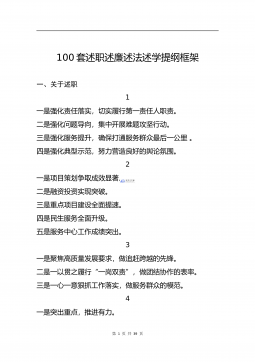
 2024-12-03 3
2024-12-03 3 -
20220106政府党组班子党史学习教育专题民主生活会“五个带头”对照检查材料VIP免费
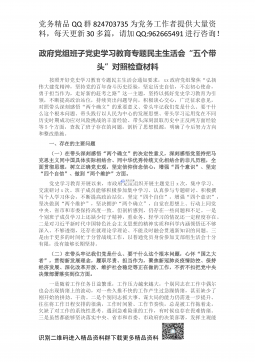
 2024-12-03 3
2024-12-03 3 -
20220106县纪委监委领导班子党史学习教育专题民主生活会对照检查材料VIP免费
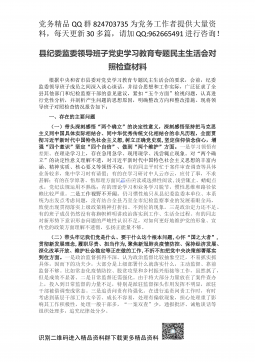
 2024-12-03 6
2024-12-03 6 -
A文秘笔杆子工作资料汇编手册(近70000字)VIP免费

 2024-12-03 3
2024-12-03 3 -
20220106县领导班子党史学习教育专题民主生活会对照检查材料VIP免费
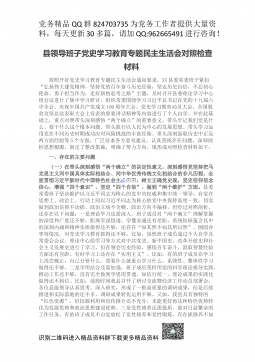
 2024-12-03 4
2024-12-03 4 -
经济开发区党工委书记管委会主任述学述职述廉述法报告VIP免费
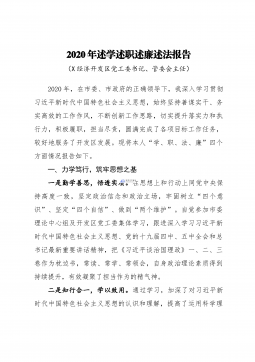
 2024-12-03 34
2024-12-03 34 -
20220106政府领导专题民主生活会五个方面对照检查材料VIP免费
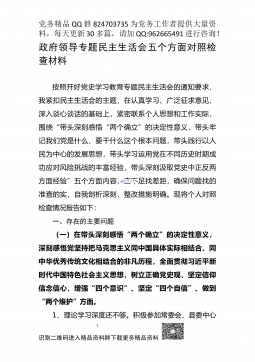
 2024-12-03 11
2024-12-03 11 -
派出所教导员述职述廉报告6篇VIP免费
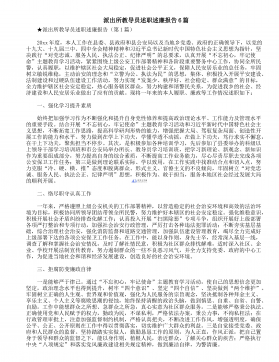
 2024-12-03 8
2024-12-03 8 -
民主生活会对县委班子及其成员批评意见清单VIP免费
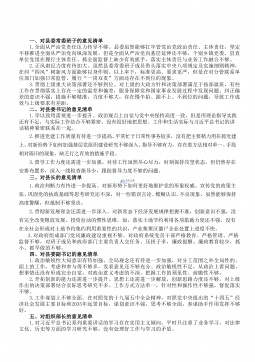
 2024-12-03 50
2024-12-03 50
分类:外语学习
价格:5.9玖币
属性:54 页
大小:147.63KB
格式:PDF
时间:2024-12-19



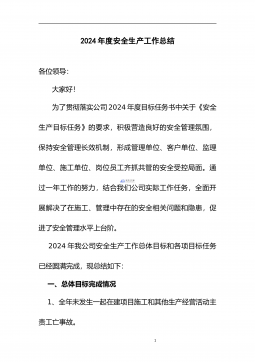
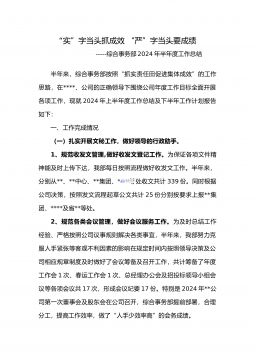
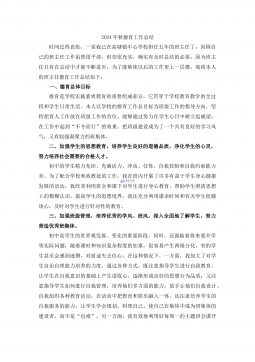
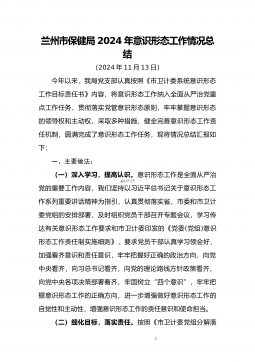
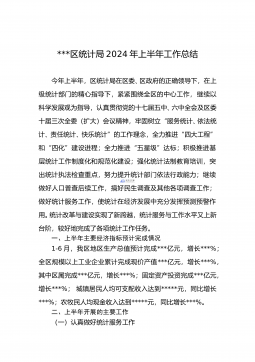
 渝公网安备50010702506394
渝公网安备50010702506394
